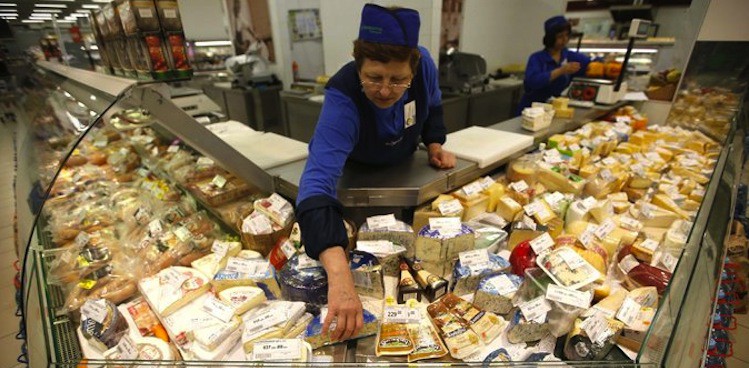
Contention over the future of Ukraine has led to an increasingly strained relationship between Russia and the European Union. The most recent group to feel the effect of such tensions? French dairy farmers and cheesemakers. Russia has imposed sanctions on $9.5 billion worth of agricultural products from the EU, the US, Norway, Australia, and Canada, meaning French farmers, cheesemakers, and exporters are suffering economic decline.
The dynamics of French-Russian cheese trade has a healthy history, and has been growing ever stronger in recent years. The New York Times reported that Russia typically accounts for 5% of all French dairy exports, and according to an article from Bloomberg, 2013 showed a dramatic increase of French imports to Russia as residents of cosmopolitan areas become more cheese-savvy:
French cheese exports to Russia climbed 29 percent to 49.5 million euros ($66 million) last year, beating a 4.4 percent increase in total exports to 3 billion euros. Brie shipments to Russia rose 37 percent, while sales of stronger-tasting Roquefort advanced 13 percent, Eurostat trade data show.
One Jean-Charles Arnaud, a proprietor of Fromagerie Arnaud in Polingy, France, expressed how the Russian ban not only has cost him truckloads of quality product turned away at the border, but has also undone years of progress educating Russians about international cheeses. He told The New York Times:
“We must have spent thousands of days doing presentations in Russian stores explaining how we make our cheese…Our cheese is not just protein and fat. It is a culture, a tradition, produced under strict conditions.”
According to Forbes, Russia is now turning to Asia and South America, scouting countries such as China, Brazil, and Argentina for food imports. While we recently learned that China does in fact have a lively cheese culture, certain French cheeses boasting Protected Designation of Origin labels are simply irreplaceable.
Photo Credit: Maxim Zmeyev/Reuters



